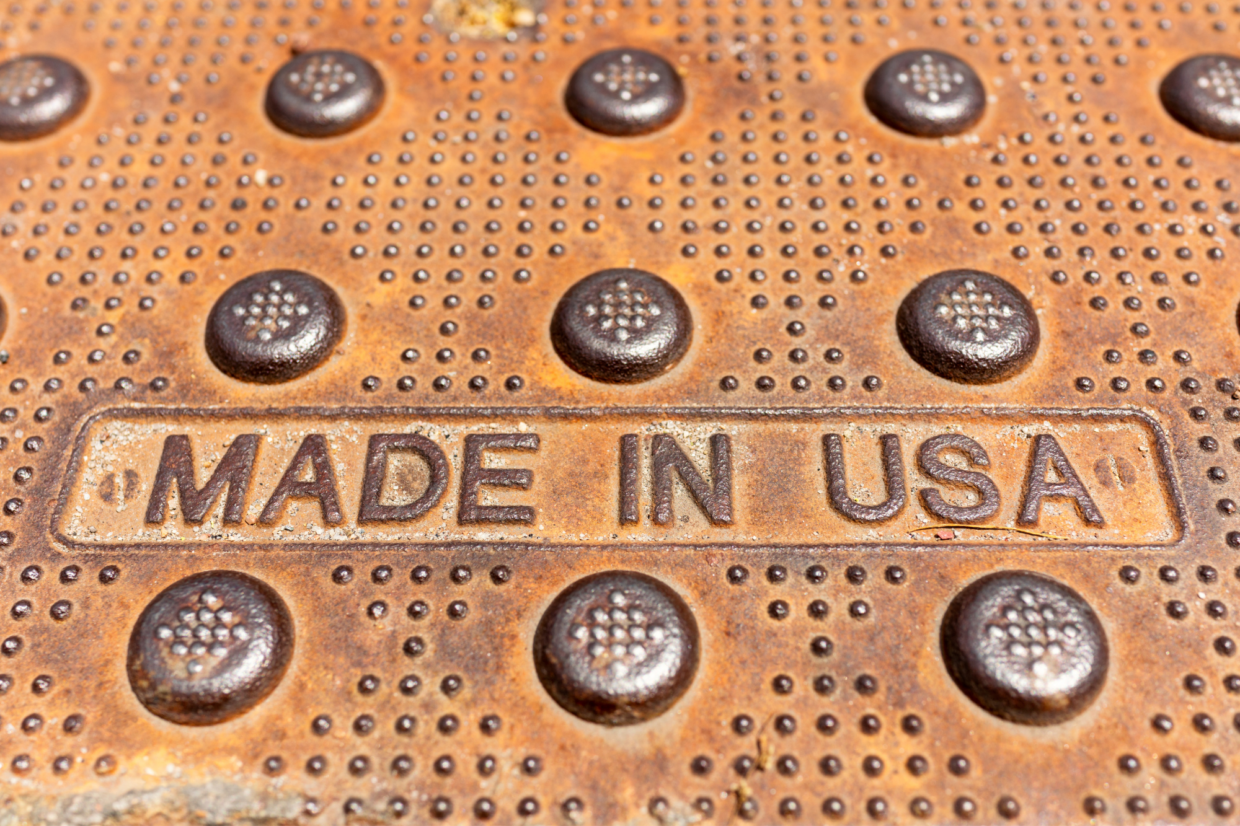When Congress passes large bills, there are always questions about how the new regulations will work. The Build America, Buy America Act, a provision of the Infrastructure Investment and Jobs bill, is no different. Here’s what manufacturers that want to participate in infrastructure-related contracts need to know.
What is the Build America, Buy America Act?
The Build America, Buy America Act requires all federal agencies to ensure that any infrastructure project receiving federal funds sources certain materials and products from the United States. For manufacturers competing for federal infrastructure contracts, that may mean a change in how they create their products.
The new purchasing regulations, which kicked in on May 14, 2022, cover three areas:
Iron and steel
All the manufacturing processes used to create iron and steel used in infrastructure projects must occur in the U.S. That includes everything from melting through the application of coatings.
Manufactured products
Manufactured products used in infrastructure projects must be made in the U.S. In addition, the cost of the components of the product that are mined, produced or manufactured in the U.S. must be more than 55% of the total component cost.
Construction materials
All manufacturing processes to create construction materials used in infrastructure projects need to be U.S.-based.
Exceptions to the Build America, Buy America Act
The second portion of the Build America, Buy America Act covers exceptions to the regulations. Federal agencies can issue waivers to the rules if the situation meets one of these criteria:
- Public interest: This is the broadest category of waivers. The public interest waiver can be issued when there are small value procurements, unusual circumstances or conflicting trade obligations.
- Nonavailability or minor components: When the product needed isn’t readily available in the U.S., a waiver can be issued. The minor components waiver covers items like fasteners and screws from the iron and steel requirement.
- Unreasonable cost: If the cost of sourcing an approved product increases the project cost by over 25%, the agency can issue a waiver.
What’s the Impact on Manufacturers?
All manufacturing businesses that hold or seek government contracts will be impacted. (According to statistics from industry researcher IBISWorld, there are 638,583 manufacturers in the U.S.)
The first impact manufacturers will likely see is increased material costs. The inability to source certain materials from outside of the country will increase operating costs.
Additionally, manufacturers may be required to explain their manufacturing process to show compliance with the new bill.
Finally, the new bill may require manufacturers to re-work their current processes. For example, if a manufacturer frequently imports iron and steel that has already begun the transformation process, they won’t be in compliance with the new bill. Solving that issue could create a new expense.
Working Out the Details
The Build America, Buy America Act is intended to bolster U.S. manufacturing. However, the expanded regulations may initially impact many companies adversely.
The first step to reaping the benefits of the new rules is understanding the bill’s requirements.
Written By Candace Shackelford

